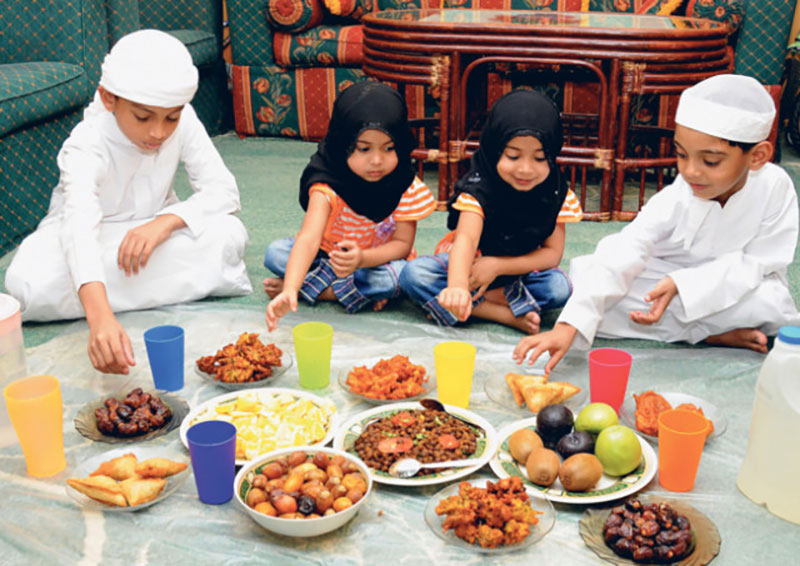Ramadan is a great opportunity to teach children many healthy dietary and moral habits, such as self-control, moderation, avoiding excess, and feeling gratitude, but it's essential to start with children wisely and flexibly.
Tips to help your child with their first fasting experience:

First, ensure that the child is free from diseases such as diabetes, high blood pressure, malnutrition, and anemia, and it is okay to undergo some medical tests.
- Gradual fasting: Do not start fasting for a child all at once, but gradually, starting from noon, then afternoon, until Maghrib.
- No fasting without suhoor: Make sure your child has a nutritious suhoor, including carbohydrates, milk, yogurt, eggs, along with thirst-resistant fruits like watermelon, oranges, apricots, and do not forget the salad dish.
- Monitor during the day: If your child feels extreme thirst, hunger, dizziness, lack of concentration, excessive sweating, or lack of urination, do not let them continue fasting and quickly give them water and juice.
- Healthy iftar: Start iftar with dates and milk, then soup, then a dish of carbohydrates (rice, bread, pasta...) and animal protein (meat, poultry, fish), cooked and raw vegetables, and a cup of juice.
- Between iftar and suhoor: It is necessary to drink water every half hour or three-quarters of an hour, along with natural juices, fresh and dried fruits, and it's okay to have homemade sweets moderately, not on a daily basis.
- Replace sweets with fruit salad and fruit pudding (cooked fruit + milk + starch) and dried fruit.
And also,
- Involve them in food preparation.
- It's okay to reward the child upon completing fasting, and do not always make their rewards food-related.
- Create a special spiritual ritual in Ramadan and other joyful times so that the children connect their beautiful Ramadan memories to this holy month and wait for that time every year.


